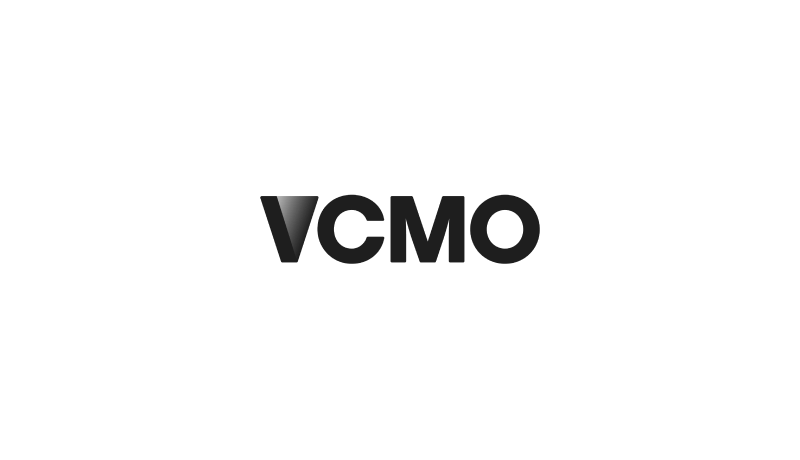Discover 10 different ways a Fractional CMO can help small and medium sized business to grow. Gain valuable insights and tips from VCMO.
Introduction
In the current economic climate, the role of a Chief Marketing Officer (CMO) is pivotal. However, not all companies can afford or require a full-time executive. This is where a Fractional and Virtual CMOs come into play. These fractional marketing executives offer the expertise and leadership of a traditional CMO but on a part-time or contract basis, providing their services on-site or remotely. This article delves into how fractional marketing executives can be a game-changer for businesses, especially for small to medium-sized enterprises looking to expand their market presence without the overhead costs of a full-time executive.
The Role of Fractional Chief Marketing Officers (CMO) in Business Growth
Fractional CMOs bring a wealth of experience and a fresh perspective to the table. Unlike a full-time CMO, they are not bogged down by day-to-day operations, allowing them to focus on strategic growth. They can identify gaps in the market, propose innovative marketing strategies, and implement effective solutions tailored to the unique needs of the business. Their role is crucial in steering the company towards sustainable growth, leveraging their expertise to maximise marketing ROI. Here are 10 ways they can help grow your business.
1. Developing a Comprehensive Marketing Strategy
Fractional CMOs excel in crafting bespoke marketing strategies that align with a company's goals. They conduct thorough market research, understand the target audience, and identify the best channels to reach them. By setting clear objectives and KPIs, they ensure that the marketing efforts are measurable and results-driven. Their strategic approach not only enhances brand visibility but also ensures that every marketing dollar is spent judiciously. Here are 4 ways a Fractional CMO can achieve this:
- Market Segmentation and Targeting: Imagine a mid-sized online retail company struggling to stand out in a crowded market. A Fractional CMO steps in and conducts a detailed analysis of customer data to identify distinct market segments. By understanding these segments, such as working professionals aged 25-40 looking for eco-friendly products, the Fractional CMO develops targeted marketing strategies. This includes personalised email campaigns and social media advertising focused on sustainability, directly appealing to this demographic's values and needs.
- Product Launch Strategy: Consider a tech startup about to launch a new software product. The Fractional CMO devises a launch strategy that includes a phased roll-out. Initially, they target tech enthusiasts and early adopters through influencer partnerships and exclusive previews on tech forums. As feedback and data are collected, the strategy evolves to include broader digital advertising campaigns and strategic partnerships with larger tech companies, thereby gradually expanding market reach.
- Competitive Analysis and Positioning: For a local bakery chain wanting to expand, the Fractional CMO conducts a comprehensive competitive analysis. They identify a gap in the market for gluten-free and vegan baked goods. Leveraging this insight, they reposition the bakery chain, highlighting these unique offerings in all marketing materials, from social media posts to in-store signage. This repositioning helps the bakery chain to not only differentiate itself from competitors but also to attract health-conscious customers.
- Integrated Omnichannel Strategy: A fashion retailer looking to increase online and in-store sales employs a Fractional CMO who implements an integrated omnichannel marketing strategy. They synchronize the online shopping experience with the physical stores, ensuring consistent messaging and branding across all channels. The strategy includes online ads that drive traffic to the website, coupled with email marketing that offers in-store discounts. The result is a seamless customer journey, whether the customer shops online or in-person, enhancing brand loyalty and increasing sales across both channels.

2. Effective Branding and Positioning
In today's saturated market, branding and positioning are more important than ever. A Fractional CMO helps in defining a clear brand identity and positioning strategy that resonates with the target audience. They ensure that the brand message is consistent across all channels, thus building a strong brand image. This clarity in branding helps in attracting the right customers and sets the business apart from competitors. How a Fractional CMO achieves this:
- Brand Identity Development: Establishing a strong, cohesive brand identity that reflects the company’s values and resonates with the target audience. This includes creating or refining elements like logos, colour schemes, and a consistent brand voice across all marketing materials.
- Market Positioning Strategy: Analysing the competitive landscape to identify a unique market position for the business. The Fractional CMO strategically positions the brand to highlight its unique selling propositions (USPs) and differentiate it from competitors.
- Brand Messaging Alignment: Ensuring that all brand messaging is consistent across various channels and touchpoints. This involves aligning the company’s mission, vision, and values with its external communications to build a strong, coherent brand narrative.
- Customer Perception Management: Monitoring and managing how customers perceive the brand. This includes gathering customer feedback, monitoring online reviews, and social media sentiments to ensure the brand is viewed positively and aligns with customer expectations.
- Brand Evolution and Adaptation: Guiding the evolution of the brand as the market and consumer preferences change. A Fractional CMO ensures that the brand remains relevant and engaging by adapting branding strategies to current trends and market demands, while maintaining the core brand identity.
“In today’s world, successful brands can’t rely on aggressive pricing strategies alone. Customers want to feel a sense of purpose and strong values they can relate to, and ensuring these are communicated and positioned effectively—and consistently—to the right audience is a critical piece of the overall business strategy. Brands have to show up more than ever, following through with promises, and proving they actively practice what they preach.”
3. Data-Driven Decision-Making
Data is at the heart of modern marketing, and a Fractional CMO leverages it to make informed decisions. They analyse market trends, customer behaviour, and campaign performance to refine marketing strategies continually. This data-driven approach helps in identifying what works and what doesn’t, allowing for agile adjustments to the marketing plan for better results. Here are some areas where a Fractional CMO will focus their efforts:
- Analytics and Insights: Utilising advanced analytics tools to gather and analyse data on customer behaviour, campaign performance, and market trends. This involves interpreting data to gain actionable insights, which guide marketing strategies and decisions.
- Performance Metrics Tracking: Establishing and tracking key performance indicators (KPIs) for all marketing activities. This includes metrics like conversion rates, customer acquisition costs, and return on investment (ROI) to measure the effectiveness of various marketing campaigns and strategies.
- Customer Segmentation and Personalisation: Using data to segment the customer base into distinct groups based on demographics, behaviour, and preferences. This enables the development of personalised marketing campaigns and messages that resonate with each specific group, enhancing engagement and conversion rates.
- Market Research and Forecasting: Conducting thorough market research to understand emerging trends and consumer needs. A Fractional CMO uses this data for forecasting future market developments, allowing the business to adapt proactively and stay ahead of the curve.
4. Content Marketing and Thought Leadership
Content marketing and establishing thought leadership are key strategies in building trust and authority in the market. A Fractional CMO guides the creation of high-quality content that addresses customer pain points and positions the company as an industry leader. This not only improves SEO but also drives engagement and leads. Here’s how a Fractional CMO leads the process:
Strategic Content Planning and Execution
- Overseeing the development of a strategic content calendar that aligns with business goals.
- Guiding the creation of diverse content types such as blogs, videos, infographics, and whitepapers.
- Keyword research ensuring content is optimised for SEO and effectively distributed across appropriate platforms.
Building and Promoting Thought Leadership
- Identifying opportunities for the business leaders to share their expertise through speaking engagements, industry panels, or publishing articles.
- Crafting and promoting thought leadership content that positions the company and its leadership as experts in their field.
- Leveraging social media and professional networks to amplify thought leadership content.
Metrics and Analytics for Content Performance
- Implementing tools and processes to track the performance of content marketing efforts.
- Analysing engagement metrics, conversion rates, and ROI to understand content efficacy.
- Using insights from data to refine and optimise the content strategy continuously.

5. Multichannel Marketing Campaigns
The expertise of a Fractional CMO is crucial in designing and implementing effective multichannel marketing campaigns. They understand the nuances of different channels - be it digital, traditional, or social media - and how to use them in harmony to maximise reach and impact. This integrated approach ensures a cohesive and consistent brand message across all platforms. Here are some of the tasks where a Fractional CMO adds value:
Integrated Campaign Design and Execution
- Developing cohesive marketing campaigns that seamlessly integrate across multiple channels such as digital, social media, email, and traditional media.
- Ensuring consistency in messaging and branding across all platforms to reinforce the campaign's impact and reach.
Channel Optimisation and Strategy
- Evaluating and selecting the most effective channels for specific campaign goals based on target audience and content type.
- Continuously assessing channel performance and making adjustments to strategy and allocation of resources for optimal engagement and ROI.
Technology and Automation Implementation
- Utilising the latest marketing technologies and automation tools to streamline campaign execution and tracking.
- Implementing CRM systems and marketing automation platforms to personalise customer experiences and manage campaigns more efficiently.
Data Analysis and Customer Insights
- Analysing data from various channels to gain insights into customer behaviour and campaign performance.
- Leveraging these insights to refine targeting, personalise messaging, and enhance overall campaign effectiveness.
6. Cost-Efficient Marketing Budget Management
One of the primary benefits of a Fractional CMO is the ability to manage marketing budgets more efficiently. They bring an objective perspective to budget allocation, ensuring that resources are invested in high-impact areas. This not only reduces wastage but also improves the overall ROI of marketing efforts. Typical areas of focus include:
- Budget Allocation and Prioritisation: The Fractional CMO assesses the overall marketing budget and strategically allocates funds to various initiatives based on their potential ROI. This involves prioritising high-impact activities and channels while reducing or eliminating spend on lower-performing areas.
- ROI Analysis and Performance Tracking: They continuously monitor and analyse the return on investment of different marketing campaigns and channels. This involves setting up clear metrics and KPIs to measure performance and using this data to make informed decisions about future budget allocations.
- Cost-effective Strategies and Tactics: The Fractional CMO explores and implements cost-effective marketing strategies. This can include leveraging organic marketing channels like SEO and social media, utilising cost-efficient digital advertising platforms, and capitalising on partnerships and collaborations to extend reach without substantial expenditure.
- Agile Budget Management: They maintain an agile approach to budget management, allowing for quick adjustments in response to market changes, campaign performance, and business needs. This flexibility ensures that the marketing budget is always aligned with the most current and effective strategies.
- Vendor and Technology Assessment: A Fractional CMO regularly reviews and evaluates the cost-benefit ratio of vendors, technology platforms, and tools used in marketing. This ensures that the business is not overspending on tools or services and is maximising the value received from these investments.
- Cross-Departmental Collaboration: They often work closely with other departments, such as sales and finance, to ensure that marketing strategies are aligned with overall business objectives and budgets. This collaboration helps in creating a unified approach to spending and investment, maximising the overall impact on the business.
"A dangerous and common trap for businesses to find themselves in is to keep doing the same thing they have always done, because there is some level of success evident. This is especially true of marketing and it can become difficult for teams to take a step back and impartially assess if they are gaining the right levels of return, and if the approach is still aligned to broader business goals. Adopting a permanent test and learn culture, promptly sharing insights, and being prepared and equipped to pivot, is no longer a ‘nice to have’ mindset."
7. Scaling Marketing Efforts
As businesses grow, scaling marketing efforts becomes crucial. A Fractional CMO can strategically guide this scaling process, ensuring that marketing efforts evolve in tandem with the business. They help in identifying new market opportunities and adapting the marketing strategy to capitalise on these opportunities. Three key areas where a Fractional CMO can scale marketing efforts include:
Expanding into New Markets or Segments
For a company looking to enter a new geographic market or target a different customer segment, a Fractional CMO can conduct market research to understand the unique needs and preferences of the new audience. They then adapt and scale the marketing strategy accordingly. This might include localising marketing materials, adjusting messaging to resonate with the new audience, and identifying the most effective channels for reaching them. For example, a U.S.-based e-commerce brand aiming to expand into the European market would benefit from the Fractional CMO's expertise in understanding cultural nuances and tailoring the marketing approach to suit different European countries.
Leveraging Digital Transformation
As a business grows, adopting more sophisticated digital marketing tools and technologies becomes essential. A Fractional CMO can oversee the integration of advanced marketing automation, CRM systems, and AI-driven analytics tools such as bettercontext.ai. This technological upgrade enables the company to handle larger volumes of customer data, personalise marketing at scale, and make more informed decisions based on real-time insights. For instance, a Fractional CMO might guide a small retail chain in implementing a robust e-commerce platform and personalised email marketing campaigns to broaden its reach and increase online sales.
Strategic Partnerships and Collaborations
Forming strategic partnerships and collaborations can be a powerful way to scale marketing efforts. A Fractional CMO can identify potential partners that align with the company's brand values and goals, and negotiate collaborations that can amplify marketing efforts. This could include co-marketing initiatives, sponsorship deals, or influencer partnerships. For example, a Fractional CMO could facilitate a partnership between a fitness apparel brand and a well-known fitness influencer or athlete, creating co-branded products and content that leverage the influencer's large following for broader brand exposure.
8. Continuous Optimisation and Adaptation
The business landscape is constantly changing, and marketing strategies need to evolve accordingly. A Fractional CMO is adept at continuous optimisation, constantly testing and tweaking strategies to adapt to market changes. This agility ensures that the business remains competitive and relevant.
9. Building Strong Marketing Teams
A Fractional CMO not only strategizes but also plays a key role in building and mentoring the marketing team. They bring their experience to train and guide the team, fostering a culture of innovation and excellence. This not only strengthens the team’s capabilities but also ensures a lasting impact on the company’s marketing efforts.
10. Celebrating Milestones and Achievements
Recognising and celebrating milestones is essential for team morale and motivation. A Fractional CMO can help in setting realistic goals and celebrating achievements, big or small. This not only boosts team spirit but also reinforces the effectiveness of the marketing strategies implemented.
Conclusion
In conclusion, engaging with a Fractional CMO can be a transformative step for businesses, especially early-stage businesses. It allows for access to top-level marketing expertise without the full-time expense, driving business growth through strategic, data-driven, and innovative marketing approaches. For owner-managers and CEOs, a Fractional CMO is a strategic partner in navigating the complexities of the market and achieving long-term success.
Get in touch: If this article reflects what you’re experiencing, get in touch to explore whether fractional marketing leadership is the right fit for your business.
About VCMO
VCMO is a UK-based provider of fractional marketing services, supporting B2B SMEs—ranging from funded scale-ups to mid-tier and private equity-backed businesses—through key moments of growth and transformation. Its Chartered Fractional CMOs and SOSTAC® certified planners embed strategic marketing leadership into organisations navigating product launches, new market entry, acquisitions, and leadership gaps.
What’s a Rich Text element?
The rich text element allows you to create and format headings, paragraphs, blockquotes, images, and video all in one place instead of having to add and format them individually. Just double-click and easily create content.
- By following these tips, you can make sure you’re noticed on LinkedIn and start building the professional connections you need to further your career.
-

Static and dynamic content editing
A rich text element can be used with static or dynamic content. For static content, just drop it into any page and begin editing. For dynamic content, add a rich text field to any collection and then connect a rich text element to that field in the settings panel. Voila!
How to customize formatting for each rich text
Headings, paragraphs, blockquotes, figures, images, and figure captions can all be styled after a class is added to the rich text element using the "When inside of" nested selector system.


Ready to take your marketing to the next level? Let us help you get there.
Subscribe to Our Newsletter
Fractional Edge is our montly newsletter sharing expert opinion on the latest trends in fractional leadership, curated marketing content from leading sources, VCMO events, and much more. Subscribing is quick — just add your name and email.












.jpg)




